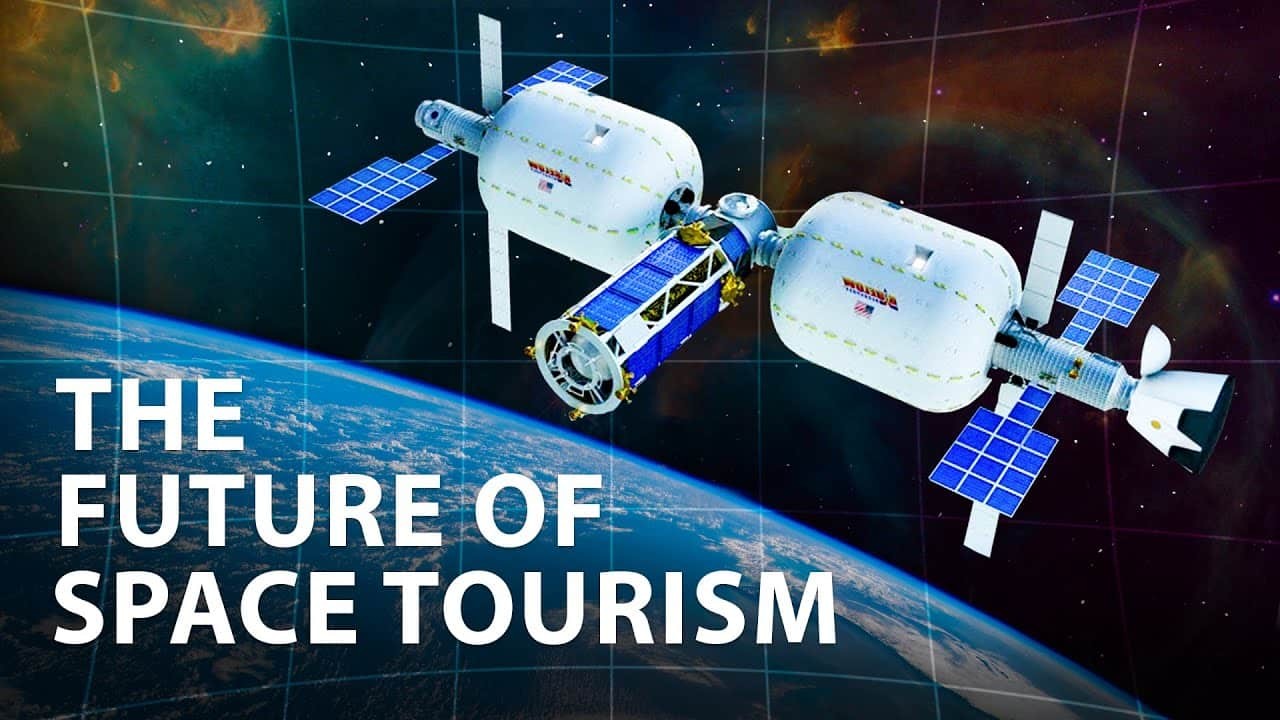Space tourism, a concept once relegated to science fiction, is rapidly becoming a reality. However, the environmental impacts of this nascent industry raise serious concerns. SIXT.VN is here to guide you through understanding the potential risks and explore sustainable alternatives for your travel plans in Vietnam. Discover eco-friendly travel options, sustainable tourism, and carbon-neutral adventures with SIXT.VN.
1. What is Space Tourism and What Does it Entail?
Space tourism involves traveling to space for recreational purposes rather than for scientific research or other specific missions. Commercial spaceflights could be available soon, offering suborbital and orbital experiences. For your upcoming Vietnam explorations, consider SIXT.VN for eco-friendly options.
Space tourism is essentially recreational space travel. Unlike astronauts on missions, space tourists venture into space purely for enjoyment and the unique experience it offers. This industry is rapidly evolving, with companies like Blue Origin, Virgin Galactic, and SpaceX pioneering different approaches.
- Suborbital Flights: These flights reach the edge of space, offering a few minutes of weightlessness and breathtaking views of Earth before returning.
- Orbital Flights: These involve orbiting the Earth for several days, providing an extended experience of space and the chance to witness multiple sunrises and sunsets from a unique vantage point.
- High-Altitude Flights: Companies like WorldView are also developing high-altitude balloon flights that offer space-like views of Earth without actually entering space.
The allure of space tourism lies in the unparalleled experience it offers. Imagine floating weightlessly, gazing at our planet from above, and experiencing the sheer wonder of space. However, this excitement is tempered by growing concerns about its environmental impact.
SIXT.VN understands your desire for unique travel experiences. While space tourism is not yet readily available, we offer a wide range of exciting and eco-conscious adventures within Vietnam.
2. What Are the Potential Environmental Impacts of Space Tourism?
Space tourism poses environmental risks due to rocket emissions, space debris, and black carbon production. Opting for sustainable travel options in Vietnam with SIXT.VN helps mitigate your carbon footprint.
The environmental impacts of space tourism are multifaceted and potentially significant:
- Rocket Emissions: Rocket launches release greenhouse gases, black carbon, and other pollutants directly into the upper atmosphere. These emissions can contribute to climate change and damage the ozone layer.
- Black Carbon: This fine soot can exacerbate respiratory problems, harm ecosystems, and accelerate climate change.
- Space Debris: Discarded rocket parts and defunct satellites contribute to space junk, which poses a collision risk to active spacecraft and can eventually fall back to Earth, potentially causing damage.
- Ozone Depletion: Some rocket fuels contain substances that can deplete the ozone layer, increasing the amount of harmful ultraviolet radiation reaching the Earth’s surface.
According to a study by the University of Cambridge, the black carbon emissions from a single space launch can have a disproportionately large impact on the climate compared to emissions at ground level. This is because the upper atmosphere is more sensitive to these pollutants.
SIXT.VN is committed to promoting responsible travel. We encourage you to consider the environmental impact of your travel choices and explore the many ways to enjoy Vietnam sustainably.
3. How Does Space Tourism Compare to Aviation in Terms of Environmental Impact?
Space tourism can be more detrimental than aviation due to direct black carbon emissions into the stratosphere. SIXT.VN provides eco-friendly transportation options to reduce your impact while exploring Vietnam.
While aviation is a significant contributor to greenhouse gas emissions, space tourism has the potential to be even more damaging on a per-passenger basis. Here’s why:
- Altitude of Emissions: Aircraft release emissions at lower altitudes, where they have a shorter atmospheric lifetime. Rockets, on the other hand, deposit pollutants directly into the stratosphere, where they can persist for years.
- Types of Emissions: Rocket exhaust contains black carbon, which is particularly effective at absorbing solar radiation and warming the atmosphere. Aircraft emissions also contain black carbon, but in smaller quantities.
- Frequency of Flights: Currently, aviation is far more frequent than space tourism. However, if space tourism becomes widespread, its cumulative impact could surpass that of aviation.
A report by the International Council on Clean Transportation found that the climate impact of a single suborbital spaceflight can be several times greater than that of a long-haul commercial flight.
At SIXT.VN, we believe that travel should be both enjoyable and sustainable. We offer a range of services to help you minimize your environmental impact, including:
- Eco-friendly car rentals: Choose from our selection of hybrid and electric vehicles.
- Sustainable tour options: Explore Vietnam’s natural beauty with responsible tour operators.
- Carbon offsetting: Compensate for your travel emissions by supporting environmental projects.
4. Can Space Tourism Be Developed Sustainably?
Sustainable space tourism is possible with green rocket launches, reusable rockets, improved efficiency, and carbon offsetting programs. SIXT.VN supports eco-friendly practices for exploring Vietnam responsibly.
While space tourism currently poses environmental challenges, there are ways to mitigate its impact and make it more sustainable:
- Green Rocket Launches: Developing rockets that use cleaner fuels, such as biofuels or liquid hydrogen, can significantly reduce emissions.
- Reusable Rockets: Reusing rockets, as SpaceX does with its Falcon 9, reduces the amount of waste associated with space launches and lowers the overall environmental footprint.
- Improved Efficiency: Optimizing rocket designs and using lightweight materials can improve fuel efficiency and reduce emissions.
- Carbon Offsetting Programs: Investing in carbon offsetting projects can help to compensate for the emissions produced by space tourism activities.
- New Regulations and Policies: Implementing stricter environmental regulations and providing incentives for sustainable practices can encourage the space tourism industry to adopt cleaner technologies.
- Reduce Space Junk: Cleaning up existing space debris and designing spacecraft that minimize the creation of new junk can reduce the long-term environmental risks.
The European Space Agency (ESA) is actively researching sustainable space technologies, including the development of electric propulsion systems and the removal of space debris.
SIXT.VN is committed to supporting sustainable tourism initiatives in Vietnam. We partner with local businesses that share our values and offer eco-friendly products and services.
5. What Technologies Can Make Space Tourism More Environmentally Friendly?
Greener rocket launches using biofuels, reusable rockets like SpaceX’s Falcon 9, and lightweight materials can improve energy efficiency in space tourism. SIXT.VN helps you explore Vietnam sustainably.
Several technologies hold promise for making space tourism more environmentally friendly:
- Biofuels: These fuels are derived from renewable sources and produce fewer emissions than traditional rocket fuels.
- Liquid Hydrogen: This fuel burns cleanly, producing only water vapor as a byproduct.
- Electric Propulsion: This technology uses electric fields to accelerate ions, providing a more efficient and cleaner way to propel spacecraft.
- Lightweight Materials: Using lighter materials, such as carbon fiber composites, can reduce the weight of rockets and spacecraft, improving fuel efficiency.
- Space Debris Removal Systems: Technologies are being developed to capture and remove space debris, reducing the risk of collisions and the long-term environmental impact.
NASA is investing heavily in research and development of these technologies, with the goal of making space exploration and tourism more sustainable.
SIXT.VN is dedicated to providing you with sustainable travel options in Vietnam. We offer:
- Hybrid and electric vehicle rentals
- Information on eco-friendly accommodations
- Tours that support local communities and protect the environment
6. How Can Governments and Organizations Regulate Space Tourism for Environmental Protection?
New environmental regulations and incentives for greener practices can help regulate space tourism. SIXT.VN adheres to responsible tourism practices, ensuring your Vietnam trip is eco-friendly.
Effective regulation is crucial for ensuring that space tourism develops in a sustainable manner. Governments and organizations can implement the following measures:
- Establish Emission Standards: Setting limits on the amount of pollutants that can be released during rocket launches.
- Promote Sustainable Technologies: Providing incentives for companies to develop and adopt cleaner technologies.
- Implement Environmental Impact Assessments: Requiring thorough assessments of the environmental impact of all space tourism activities.
- Regulate Space Debris: Enforcing measures to prevent the creation of new space junk and promote the removal of existing debris.
- International Cooperation: Working together to develop global standards for sustainable space tourism.
The United Nations Committee on the Peaceful Uses of Outer Space (COPUOS) is working to develop international guidelines for space sustainability.
SIXT.VN is committed to responsible tourism practices in Vietnam. We work with local communities to minimize our environmental impact and support sustainable development.
7. What Are the Ethical Considerations of Space Tourism Regarding Environmental Impact?
Ethical considerations include balancing space exploration benefits with environmental protection. SIXT.VN ensures your travels in Vietnam are ethically and environmentally sound.
The ethical considerations of space tourism extend beyond the immediate environmental impact. It is essential to consider the broader implications of this industry:
- Environmental Justice: Ensuring that the environmental burdens of space tourism are not disproportionately borne by marginalized communities.
- Intergenerational Equity: Protecting the environment for future generations.
- Resource Allocation: Considering whether the resources invested in space tourism could be better used to address pressing environmental problems on Earth.
- Planetary Protection: Preventing the contamination of other celestial bodies with Earth-based life.
The Space Tourism Society is working to promote ethical and responsible space tourism practices.
SIXT.VN is committed to ethical and sustainable tourism in Vietnam. We believe that travel should benefit both visitors and local communities while protecting the environment.
8. What Alternatives Exist for Experiencing Awe and Wonder Without Space Travel?
Alternatives include exploring Earth’s natural wonders and engaging in virtual space experiences. SIXT.VN offers amazing Vietnam tours that inspire awe without harming the planet.
While space tourism offers a unique perspective, there are many ways to experience awe and wonder without leaving Earth:
- Explore Natural Wonders: Visit national parks, explore remote wilderness areas, and witness the beauty of our planet firsthand.
- Engage in Adventure Travel: Participate in activities like hiking, diving, or wildlife safaris.
- Learn About the Universe: Visit planetariums, observatories, and science museums.
- Virtual Reality Experiences: Immerse yourself in virtual simulations of space travel and exploration.
- Support Conservation Efforts: Contribute to organizations that are working to protect our planet’s biodiversity and natural resources.
SIXT.VN offers a wide range of tours and activities in Vietnam that will inspire awe and wonder:
- Halong Bay Cruises: Explore the stunning limestone karsts of this UNESCO World Heritage Site.
 Halong Bay Vietnam
Halong Bay Vietnam
- Sapa Treks: Hike through the breathtaking rice terraces and mountain landscapes of Sapa.
 Sapa Vietnam
Sapa Vietnam
- Mekong Delta Tours: Explore the vibrant floating markets and lush waterways of the Mekong Delta.
 Mekong Delta Vietnam
Mekong Delta Vietnam
9. How Can Individuals Make Informed Decisions About Space Tourism and Its Environmental Impact?
Individuals can research and support sustainable space tourism initiatives. SIXT.VN provides information to make eco-conscious travel choices in Vietnam.
Making informed decisions about space tourism requires careful consideration of the environmental impact:
- Research the Environmental Practices of Space Tourism Companies: Look for companies that are committed to sustainability and are using cleaner technologies.
- Support Sustainable Space Tourism Initiatives: Contribute to organizations that are working to promote responsible space tourism practices.
- Offset Your Carbon Footprint: If you choose to participate in space tourism, consider offsetting your emissions by supporting environmental projects.
- Advocate for Stronger Environmental Regulations: Encourage governments to implement stricter regulations on space tourism activities.
SIXT.VN is committed to providing you with the information you need to make eco-conscious travel choices in Vietnam. We offer:
- Detailed information about the environmental impact of different travel options
- Recommendations for sustainable accommodations and tour operators
- Opportunities to offset your carbon footprint
10. What is the Future of Space Tourism and Environmental Sustainability?
The future depends on technological advancements and responsible practices. SIXT.VN leads the way in sustainable travel, offering greener options for exploring Vietnam.
The future of space tourism and environmental sustainability depends on several factors:
- Technological Advancements: Continued development of cleaner rocket fuels, reusable rockets, and other sustainable technologies.
- Stronger Regulations: Implementation of stricter environmental regulations by governments and international organizations.
- Increased Public Awareness: Greater awareness among the public about the environmental impact of space tourism.
- Responsible Practices by the Space Tourism Industry: Commitment by space tourism companies to adopt sustainable practices and minimize their environmental footprint.
- International Cooperation: Collaboration among nations to develop global standards for sustainable space tourism.
SIXT.VN is dedicated to leading the way in sustainable travel in Vietnam. We are constantly seeking new ways to reduce our environmental impact and promote responsible tourism practices.
Contact us today:
- Address: 260 Cau Giay, Hanoi, Vietnam
- Hotline/Whatsapp: +84 986 244 358
- Website: SIXT.VN
FAQ: Is Space Tourism Good for the Planet?
1. Is space tourism inherently bad for the environment?
Yes, currently, space tourism poses environmental risks due to rocket emissions, space debris, and black carbon production.
2. How does space tourism contribute to climate change?
Rocket launches release greenhouse gases and black carbon into the upper atmosphere, contributing to climate change and ozone depletion.
3. Is space tourism more harmful than air travel?
Per passenger, space tourism can be more detrimental due to direct black carbon emissions into the stratosphere.
4. Can space tourism ever be sustainable?
Yes, sustainable space tourism is possible with green rocket launches, reusable rockets, improved efficiency, and carbon offsetting programs.
5. What technologies can make space tourism more eco-friendly?
Greener rocket launches using biofuels, reusable rockets like SpaceX’s Falcon 9, and lightweight materials can improve energy efficiency.
6. How can governments regulate space tourism to protect the environment?
New environmental regulations and incentives for greener practices can help regulate space tourism.
7. What are the ethical considerations of space tourism regarding its environmental impact?
Ethical considerations include balancing space exploration benefits with environmental protection and ensuring environmental justice.
8. Are there alternatives to space tourism that offer similar experiences of awe and wonder?
Alternatives include exploring Earth’s natural wonders, engaging in virtual space experiences, and supporting conservation efforts.
9. How can individuals make informed decisions about space tourism and its environmental impact?
Individuals can research and support sustainable space tourism initiatives and offset their carbon footprint.
10. What is SIXT.VN doing to promote sustainable tourism?
SIXT.VN supports eco-friendly practices, offers greener travel options, and provides information to make eco-conscious travel choices in Vietnam.



